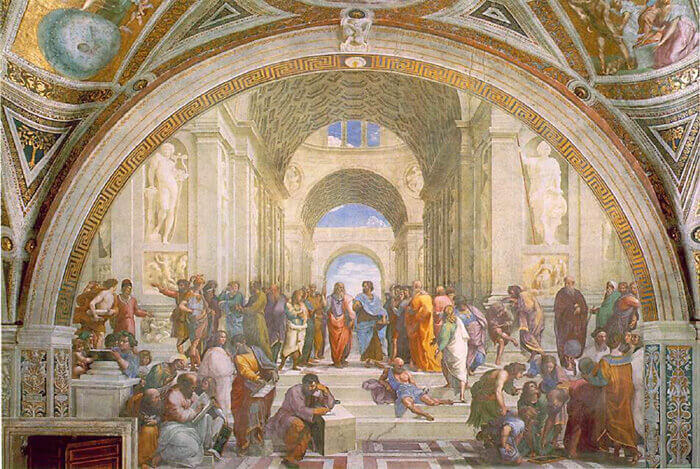Competence Network (RdC)

Reference area: ACTASP Project “Archive of Tourism, Arts, Entertainment and Cultural Heritage Skills”
Introduction
The Competence Network (RdC) represents a scientific-cultural partnership aimed at defining professional profiles focused on skills. Although professions in Tourism, Arts, Entertainment and Cultural Heritage constitute the initial focus, the intent is to broaden the scope of the initiative to the entire professional panorama, given the universality of the principles of skills. We invite all stakeholders in the cultural tourism sector, including universities, bodies, public and private institutions, trade associations and professionals, as well as industry experts, to join the network. Participation in the Competence Network is of an exclusively scientific and cultural nature, without any economic burden or formal commitment, other than that of contributing with ideas and advice, according to the methods established independently by each partner.
Anyone interested in participating can indicate a contact person to share updates on the progress of the project. For more information or to join, you can send an email to info@aiptoc.it.
Network objectives
The objective of the Competence Network (RdC) is the creation of shared standards of professional skills based on the EQF, ECVET and ANPR standards.
The starting base
The starting point is the 'Skills Cycle' model, a tool created to integrate professional and training standards.
The categorization of reference standards for professional qualifications and training acquired in non-formal and informal contexts has traditionally developed following two main approaches:
- Professional Standards (or employment standards). These are based on the logic of employment and focus on the duties, tasks and results obtained in a work context. In essence: “what I am able to do in a work context”.
- Educational Standards (or education/training). These, however, focus on the logic of education and training. They focus on what is learned, how it is learned, and how learning is assessed. In essence, they concern the process of acquiring and evaluating knowledge and skills.
The need to integrate the two types of standards has been felt for years as these standards are not essentially separate entities (world of education and work); this has meant that training standards have undergone a conceptual evolution over the years that allows for this integration.
The training standards, which were traditionally formulated in terms of learning input (such as disciplines, training contents, study programs and training delivery methods), have evolved towards a definition based on learning outcomes. These results, obtained at the end of the learning path, are expressed in terms of Knowledge, Skills, Responsibility and Autonomy. Attention, therefore, has shifted not so much to the structure of the training path necessary to obtain a qualification, but rather to the skills actually acquired at its completion.
The convergence and integration promoted by European standards, such as EQF and ECVET, have led to the definition of standards related to learning (both formal, non-formal and informal) expressed in terms of Knowledge, Skills and Autonomy and Responsibility. These represent both professional standards (referring to the world of work) and training standards (referring to the world of training).

For a clarification on the "Skills Cycle" model, see the dedicated page: The Skills Cycle for the Construction of Professional Profiles and Training Standards
The Tourism, Arts and Cultural Heritage Competence Framework
The 'Competence Cycle' model was the basis for the development of the 'Tourism, Arts and Heritage Competence Framework (TAH-CF)', in line with the European Qualifications Framework (EQF) and Recommendation 2009/C 155/02 (ECVET).
The current version of the TAH-CF presents around 200 professional profiles and constitutes a starting point for creating a shared framework in the cultural-tourism sector. We invite other players in the sector to contribute to future revisions.
For details, see the dedicated page: Tourism, Arts and Heritage Competence Framework (TAH-CF)
ACTASP Project: “Archive of Tourism, Arts, Entertainment and Cultural Heritage Skills”
A further initiative in which we invite stakeholders to participate is the ACTASP project described below:
ACTASP Project: “Archive of Tourism, Arts, Entertainment and Cultural Heritage Skills”. The ACTASP archive consists of the Repertoire of Skills and various integrated databases:
- Repertoire of Professions: Directory of Professional Profiles;
- Partners: Multimedia database of recognized professionals in Tourism, Arts, Entertainment and Cultural Heritage (includes the B.D. Trainers)
- Educational Paths: Database of training courses for tourism, arts, entertainment and cultural heritage skills;
- Training Centers: Universities, AFAM Institutes, Schools and Training Centers and other training structures.
Currently, the Archive has typical Web 3.0 characteristics: it is multimedia, geolocalized (GeoWeb), integrated with social media (SocialWeb), multithematic and multiterritorial, equipped with advanced search functionality and WikiWeb. With the integration of databases, it will be possible to extrapolate various related information. For example:
For each profession, it will be possible to identify related institutes and training centers, specific training courses and recognized professionals.
For each training path, it will be possible to identify universities, AFAM institutes, schools or training centers that offer it, as well as the professional skills associated with that path.
Link to Repertoire of Professions
Featured










